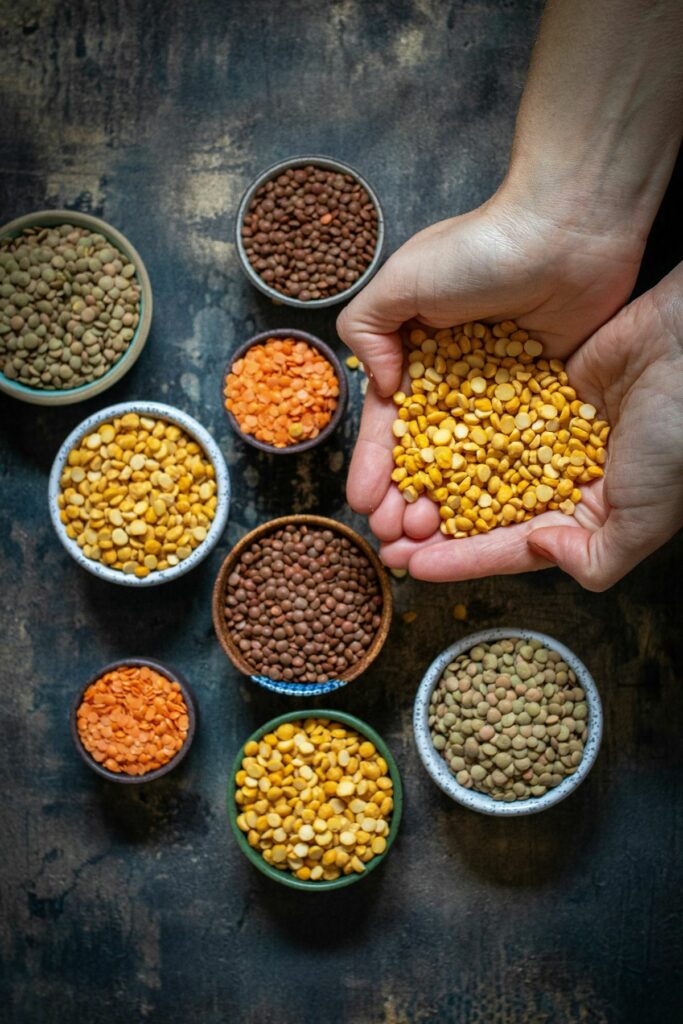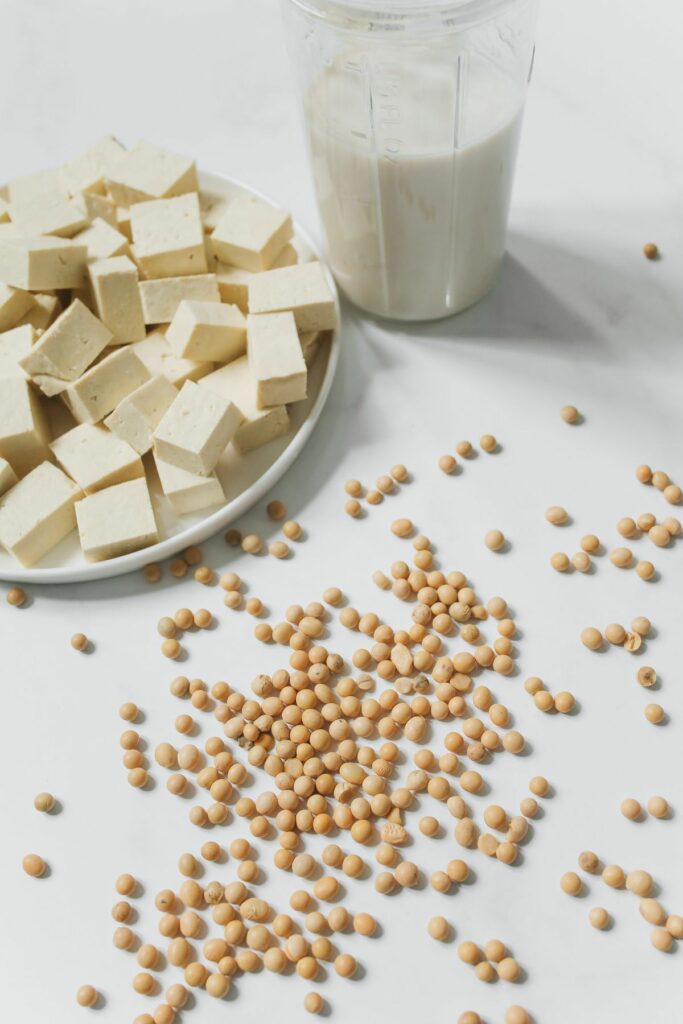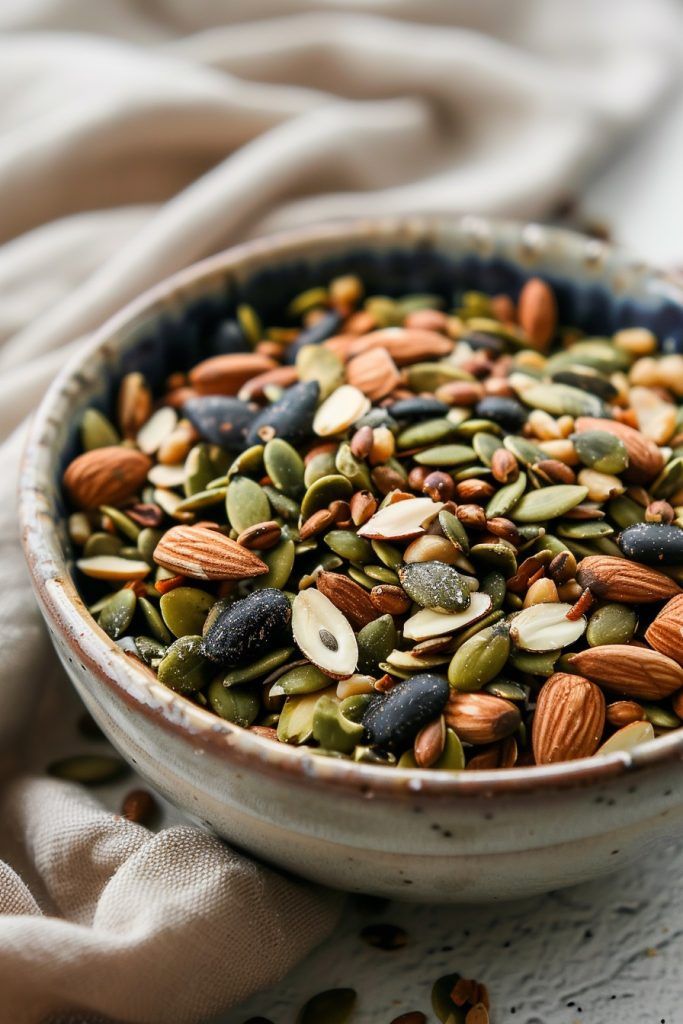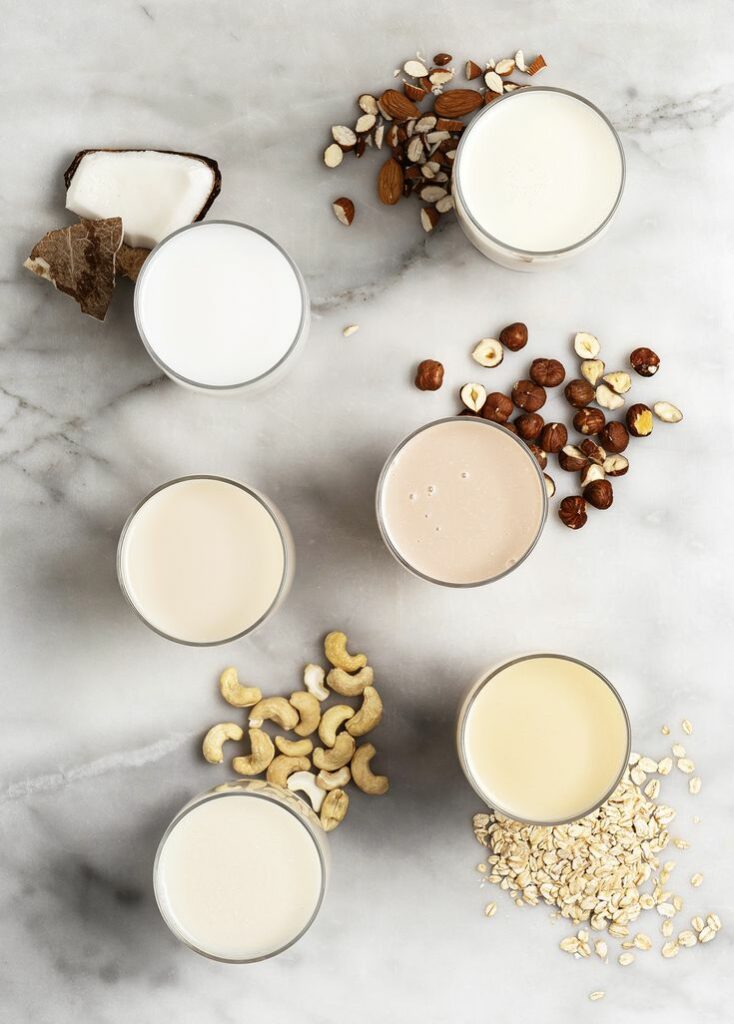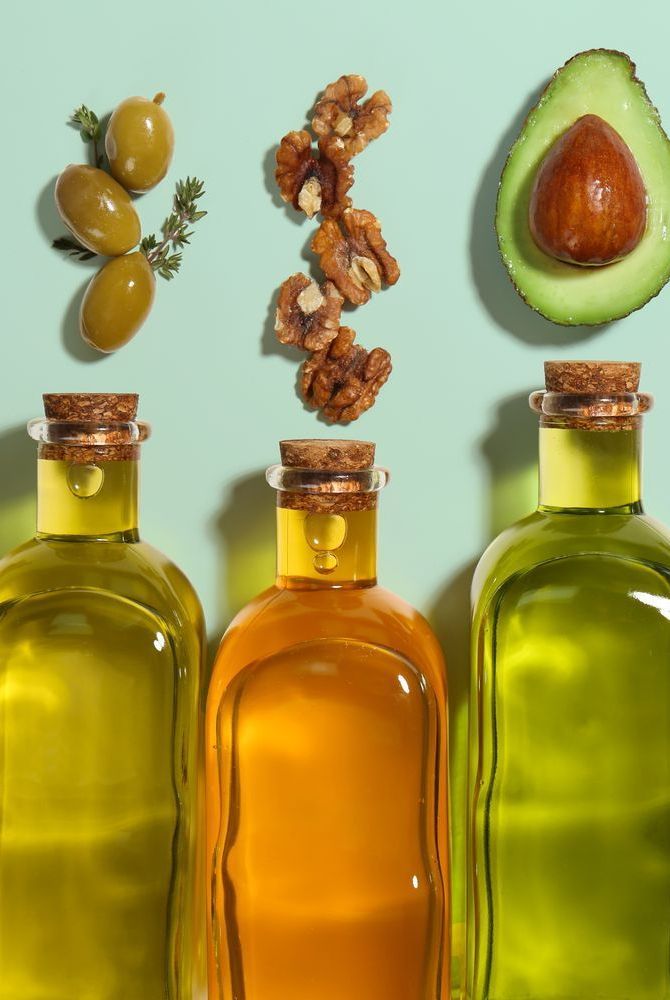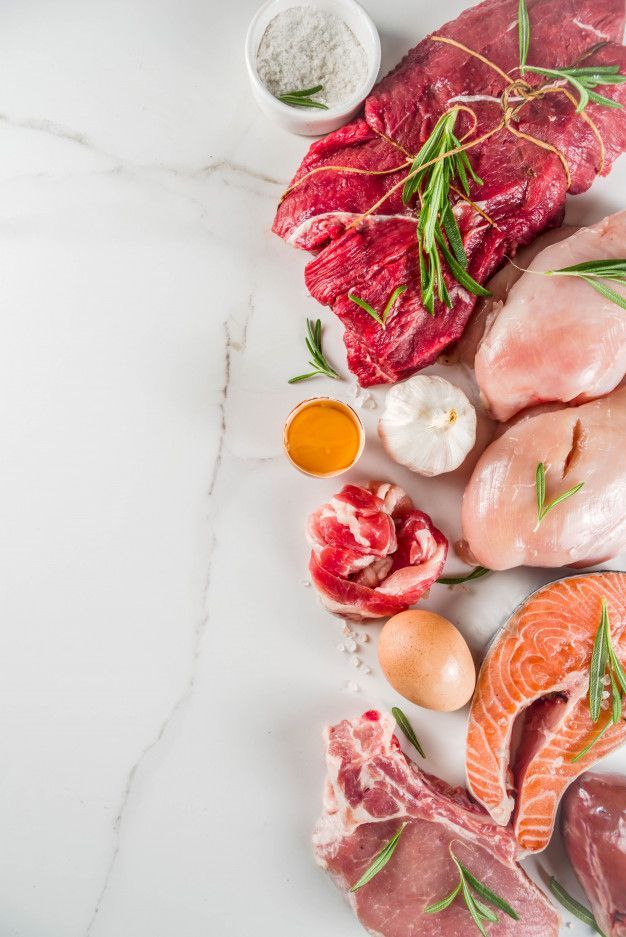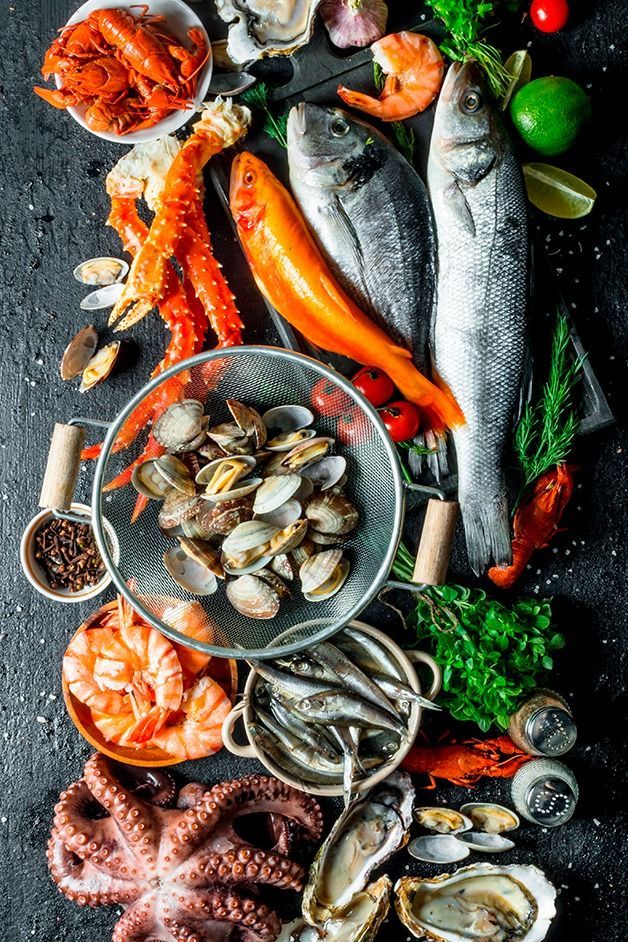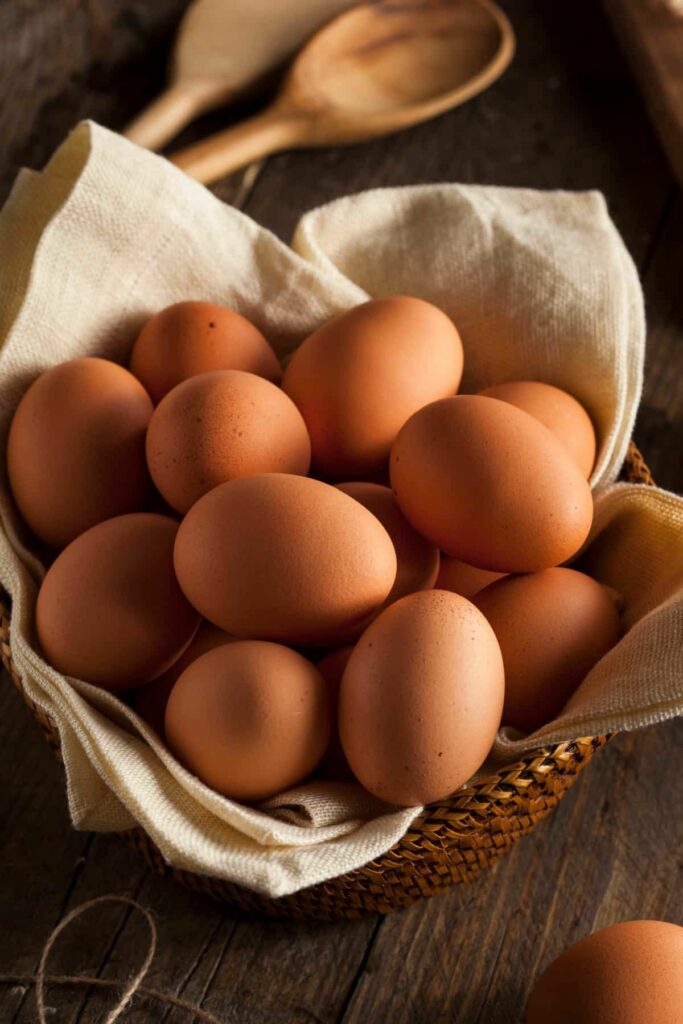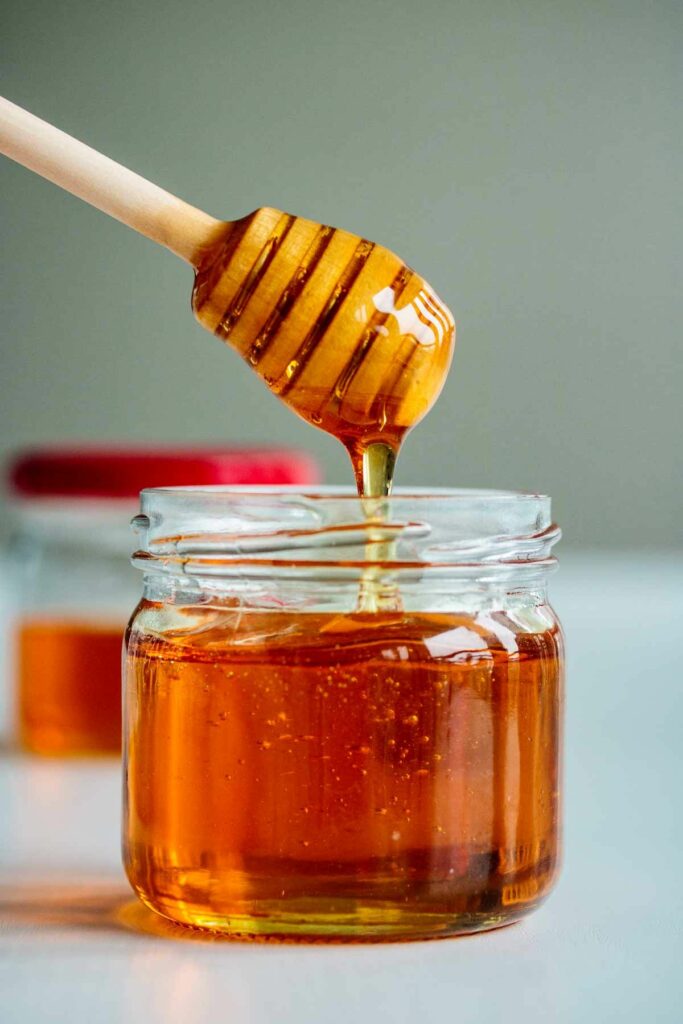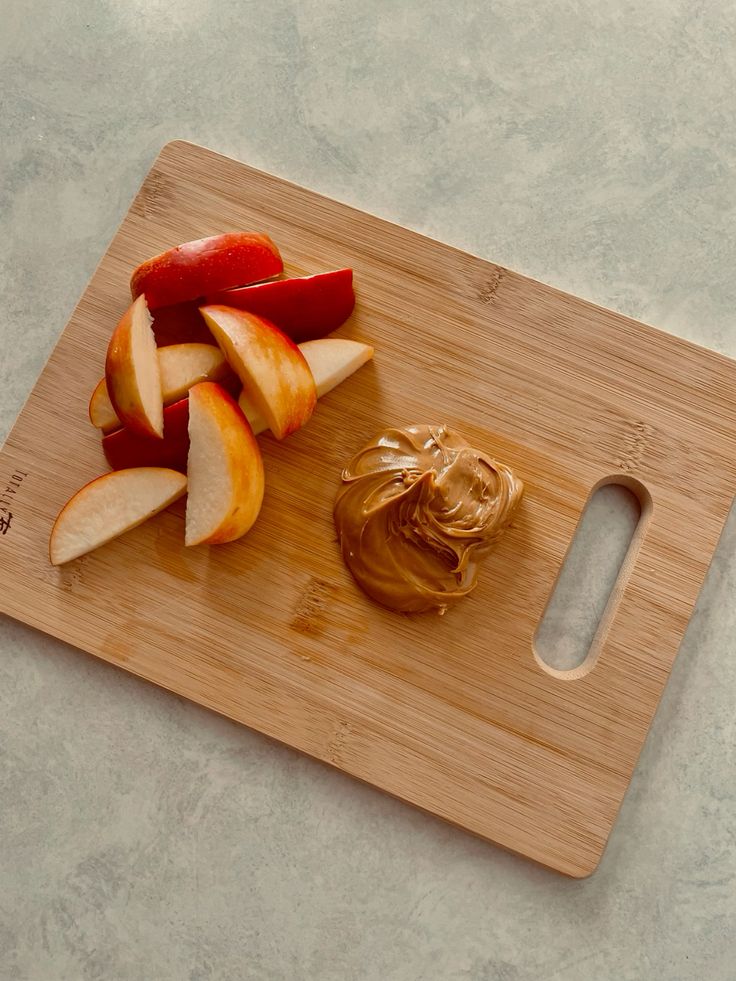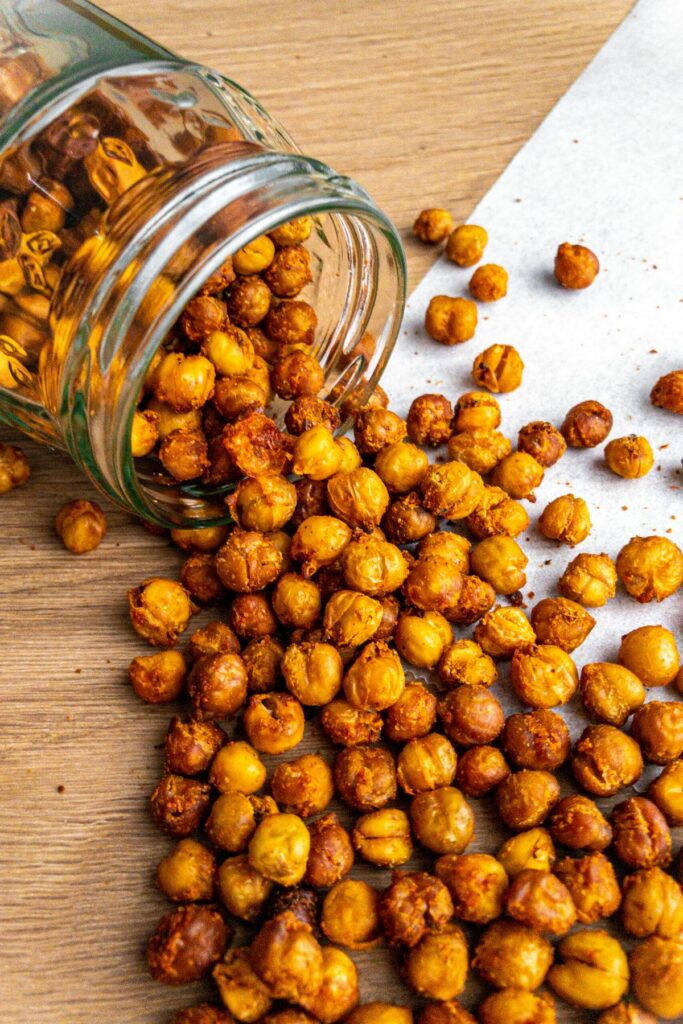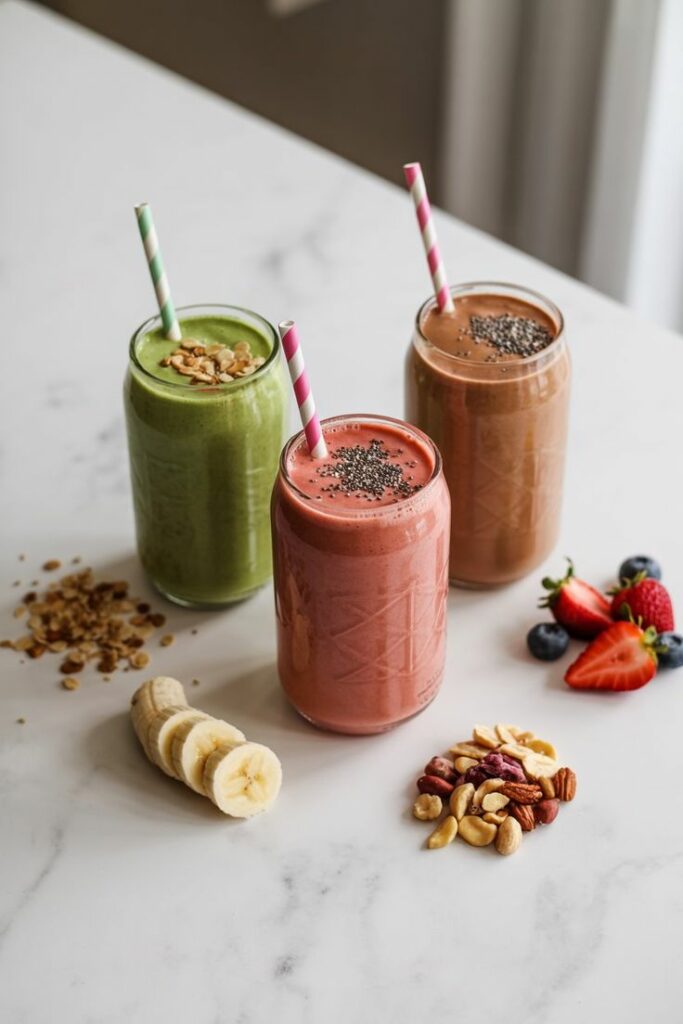A vegan diet is characterized as a method for living that endeavors to avoid all types of animal abuse and brutality, regardless of whether for food, clothing, or some other reason. Therefore, the vegan diet is without any animal products, including meat, eggs, and dairy. Individuals pursue a veggie lover diet for different reasons. If you want to get into the vegan diet, you should read this article, which is a guide to a vegan diet for beginners.
Benefits Of Vegan Diet:
The benefits of vegan diet for beginners have gained significant attention in recent years as more people shift toward plant-based eating for health, environmental, and ethical reasons. A vegan diet excludes all animal products, including meat, poultry, fish, eggs, dairy, and even honey. Instead, it focuses on fruits, vegetables, whole grains, legumes, nuts, and seeds.
- Benefits Of Vegan Diet:
- Foods To Eat In A Vegan Diet For Beginners:
- Foods To Avoid:
- Some Healthy Vegan Snacks:
- Conclusion: Vegan Diet for Beginners
- FAQs:
- Q. What is a vegan diet?
- Q. Is a vegan diet healthy for beginners?
- Q. How do beginners get enough protein on a vegan diet?
- Q. Do I need supplements on a vegan diet?
- Q. Can a vegan diet help with weight loss?
- Q. What are common mistakes beginners make?
- Q. Is a vegan diet expensive?
- Q. How can I start a vegan diet as a beginner?
- Q. Will I feel tired after switching to a vegan diet?
- Q. Can children and pregnant women follow a vegan diet?
When properly planned, a vegan diet for beginners can offer numerous health advantages and support overall well-being. Below are the key benefits explained in detail.
1. Supports Healthy Weight Management:
One of the most recognized benefits of a vegan diet is its role in weight management. Plant-based foods are generally lower in calories and higher in fiber compared to animal-based foods. High-fiber foods promote fullness, reduce overeating, and help maintain a healthy body weight.
Studies suggest that people following a vegan diet often have a lower body mass index (BMI) compared to non-vegans.
2. Improves Heart Health:
Heart disease remains a leading health concern worldwide. A vegan diet can significantly reduce the risk of cardiovascular problems because it is naturally low in saturated fat and cholesterol.
How it helps:
Reduces LDL (bad) cholesterol
Lowers blood pressure
Improves blood vessel function
Decreases inflammation
Plant foods such as oats, beans, flaxseeds, and leafy greens support heart health effectively.
3. Better Blood Sugar Control:
The benefits of a vegan diet extend to improved blood sugar regulation. High-fiber plant foods slow down glucose absorption, preventing sudden spikes in blood sugar levels.
This makes a vegan diet for beginners beneficial for:
- People with prediabetes
- Individuals with type 2 diabetes
- Those aiming to prevent insulin resistance
Whole grains, legumes, and vegetables help stabilize blood sugar naturally.
4. Improves Digestive Health:
A vegan diet is rich in dietary fiber, which promotes healthy digestion. Fiber helps maintain regular bowel movements and supports a balanced gut microbiome.
Healthy digestion leads to:
- Reduced constipation
- Lower risk of colon disorders
- Better nutrient absorption
Fruits, vegetables, whole grains, and legumes provide both soluble and insoluble fiber essential for gut health.
5. Reduces Risk of Certain Cancers:
Research suggests that plant-based diets may lower the risk of certain cancers, particularly colorectal cancer. Antioxidants, phytochemicals, and fiber found in plant foods help protect cells from damage caused by free radicals.
Cruciferous vegetables like broccoli, cabbage, and cauliflower contain compounds that support cancer prevention.
6. Boosts Energy Levels:
Many people report improved energy levels after switching to a vegan diet for beginners. Nutrient-dense plant foods provide vitamins, minerals, and antioxidants that enhance overall vitality.
Iron-rich foods such as lentils, spinach, and beans help maintain healthy blood oxygen levels, especially when combined with vitamin C sources.
7. Supports Environmental Sustainability:
Another major benefit of a vegan diet is its positive impact on the environment. Plant-based eating generally requires fewer natural resources such as water and land, compared to animal farming.
Benefits include:
- Lower carbon footprint
- Reduced greenhouse gas emissions
- Conservation of biodiversity
Choosing plant-based foods supports sustainable living.
8. Promotes Ethical and Animal Welfare Values:
Many individuals adopt a vegan lifestyle to prevent animal suffering. Avoiding animal products aligns with ethical values and compassionate living.
Note
A vegetarian diet is connected to a few other medical advantages. Be that as it may, more research is expected to decide causality.
Foods To Eat In A Vegan Diet For Beginners:
Starting a plant-based lifestyle can feel overwhelming at first. Many beginners wonder what they can actually eat if they remove meat, dairy, and eggs from their diet. The good news is that a vegan diet is full of variety, color, and nutrition. If you are just beginning your journey, this detailed guide on Foods To Eat In Vegan Diet For Beginners will help you understand what to include in your daily meals for balanced and healthy nutrition.
A well-planned vegan diet focuses on whole, minimally processed plant foods that provide protein, fiber, vitamins, minerals, and healthy fats.
1. Fruits:

Fruits are an essential part of Foods To Eat In Vegan Diet For Beginners because they provide natural sugars, fiber, and antioxidants.
Best Choices:
- Apples
- Bananas
- Oranges
- Mangoes
- Berries
- Papaya
- Pineapple
- Grapes
Benefits:
- Boost immunity
- Improve digestion
- Provide natural energy
- Support skin health
Fruits can be eaten fresh, added to smoothies, mixed into oatmeal, or used as healthy desserts.
2. Vegetables:
Vegetables should make up a large portion of your plate. They are low in calories and rich in nutrients.
Include a Variety:
Leafy Greens:
- Spinach
- Kale
- Lettuce
- Mustard greens
Cruciferous Vegetables:
- Broccoli
- Cauliflower
- Cabbage
Colorful Vegetables
- Carrots
- Beetroot
- Bell peppers
- Tomatoes
Vegetables provide iron, calcium, potassium, fiber, and antioxidants. They also help in weight management and reduce the risk of chronic diseases.
3. Whole Grains:
Whole grains are important when discussing Foods To Eat In Vegan Diet For Beginners because they provide long-lasting energy.
Healthy Whole Grains:
- Brown rice
- Quinoa
- Oats
- Whole wheat
- Millet
- Barley
Why They Matter:
- Provide complex carbohydrates
- Keep you full longer
- Support digestive health
- Stabilize blood sugar levels
Replace refined grains with whole grains for better nutrition.
4. Legumes:
Legumes are a vital part of vegan eating. They are rich in protein and fiber.
Best Options:
- Lentils
- Chickpeas
- Kidney beans
- Black beans
- Green peas
Benefits:
- Excellent protein source
- Rich in iron
- Support muscle repair
- Improve gut health
For beginners, adding lentil soups, chickpea curries, or bean salads makes the transition easier.
5. Plant-Based Protein Sources:
Protein is often a major concern for beginners. Fortunately, there are many options under Foods To Eat In Vegan Diet For Beginners.
High-Protein Vegan Foods:
- Tofu
- Tempeh
- Soy milk
- Edamame
- Peanut butter
- Almond butter
These foods provide essential amino acids needed for muscle growth and repair.
6. Nuts and Seeds:
Nuts and seeds provide healthy fats, protein, and micronutrients.
Include:
- Almonds
- Cashews
- Walnuts
- Chia seeds
- Flaxseeds
- Sunflower seeds
- Pumpkin seeds
They are rich in omega-3 fatty acids, which are important for brain and heart health.
Add them to smoothies, oatmeal, salads, or eat them as snacks.
7. Plant-Based Dairy Alternatives
Many beginners worry about replacing milk and dairy products. Luckily, plant-based alternatives are widely available.
Options:
- Almond milk
- Soy milk
- Oat milk
- Coconut milk
- Vegan yogurt
Choose fortified versions to ensure adequate calcium and vitamin B12 intake.
8. Healthy Fats:
Healthy fats are necessary for nutrient absorption and hormone balance.
Good Vegan Fat Sources:
- Avocado
- Olive oil
- Coconut (in moderation)
- Nut butters
Use these in controlled portions to maintain a balanced diet.
9. Fortified Foods & Supplements:
While focusing on Foods To Eat In Vegan Diet For Beginners, it’s important to monitor certain nutrients.
Key Nutrients to Watch:
- Vitamin B12
- Vitamin D
- Iron
- Calcium
- Omega-3
Fortified plant milks and cereals can help. Some individuals may require supplements after consulting a healthcare professional.
Note
These insignificantly prepared plant foods are extraordinary increases to any vegetarian pantry.
Foods To Avoid:
Vegans avoid eating any animal foods, as well as any foods containing ingredients derived from animals. These include:
Meat And Poultry:
Beef, lamb, pork, veal, horse, organ meat, wild meat, chicken, turkey, goose, duck, quail, etc.
Fish And Seafood:
All types of fish, anchovies, shrimp, squid, scallops, calamari, mussels, crab, lobster, etc.
Dairy:
Milk, yogurt, cheese, butter, cream, ice cream, etc.
Eggs:
From chickens, quails, ostriches, fish, etc.
Bee Products:
Honey, bee pollen, royal jelly, etc.
Animal-based Ingredients:

Whey, casein, lactose, egg white albumen, gelatin, cochineal or carmine, isinglass, shellac, L-cysteine, animal-derived vitamin D3 and fish-derived omega-3 fatty acids.
Note
Vegetarians abstain from devouring any animal-based food.
Some Healthy Vegan Snacks:
Healthy snacking plays an important role in maintaining energy levels, balancing blood sugar, and preventing overeating at main meals. If you follow a plant-based lifestyle, choosing the right Healthy Vegan Snacks ensures you stay nourished while avoiding processed, high-sugar options.
Vegan snacks are free from animal products and focus on whole, nutrient-dense ingredients such as fruits, vegetables, legumes, nuts, seeds, and whole grains. The key is to select snacks that provide protein, fiber, and healthy fats to keep you full and energized.
In this detailed guide, we will explore the best Healthy Vegan Snacks, their benefits, and easy preparation ideas.
1. Fresh Fruits with Nut Butter:
Fruits are naturally sweet and rich in vitamins, fiber, and antioxidants. Pairing fruits with nut butter adds protein and healthy fats, making them more satisfying.
Examples:
- Apple slices with peanut butter
- Banana with almond butter
- Pear with cashew butter
Benefits:
- Boosts energy
- Improves digestion
- Keeps you full longer
This combination is one of the easiest and most convenient healthy vegan snacks.
2. Roasted Chickpeas:
Roasted chickpeas are crunchy, protein-rich, and easy to prepare.
Why They’re Great:
- High in plant protein
- Rich in fiber
- Low in unhealthy fats
Simply toss cooked chickpeas with olive oil and spices, then roast until crispy.
3. Vegan Energy Balls:
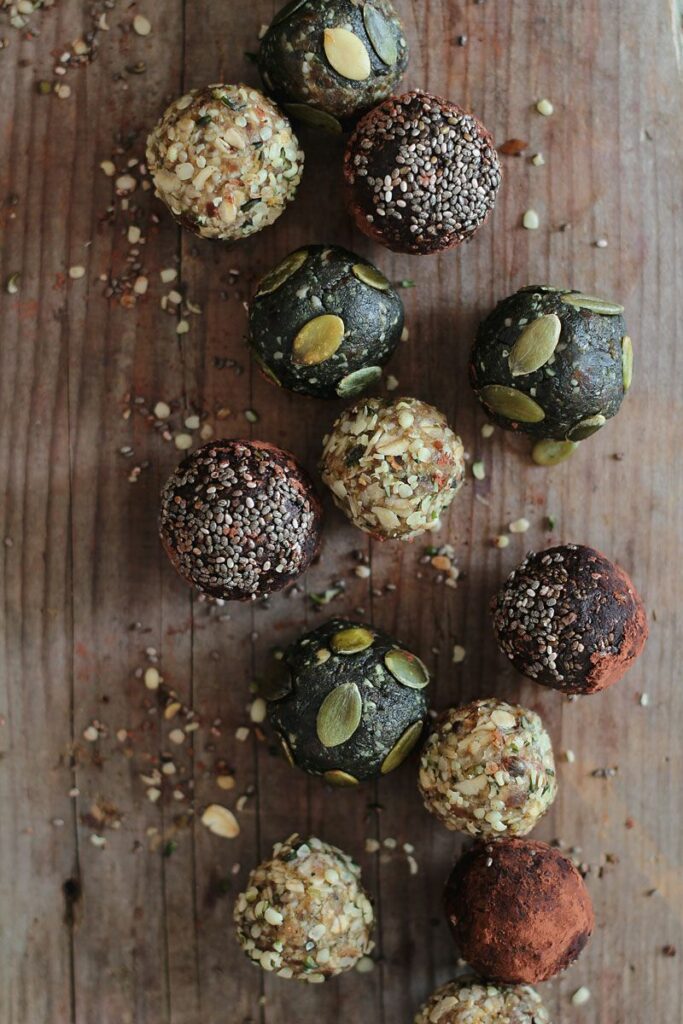
Energy balls are perfect healthy vegan snacks for busy days.
Common Ingredients:
- Dates
- Oats
- Peanut butter
- Chia seeds
- Cocoa powder
They are:
- Naturally sweetened
- Easy to store
- Rich in fiber and healthy fats
No baking is required—just blend and roll into balls.
4. Nuts and Seeds Mix
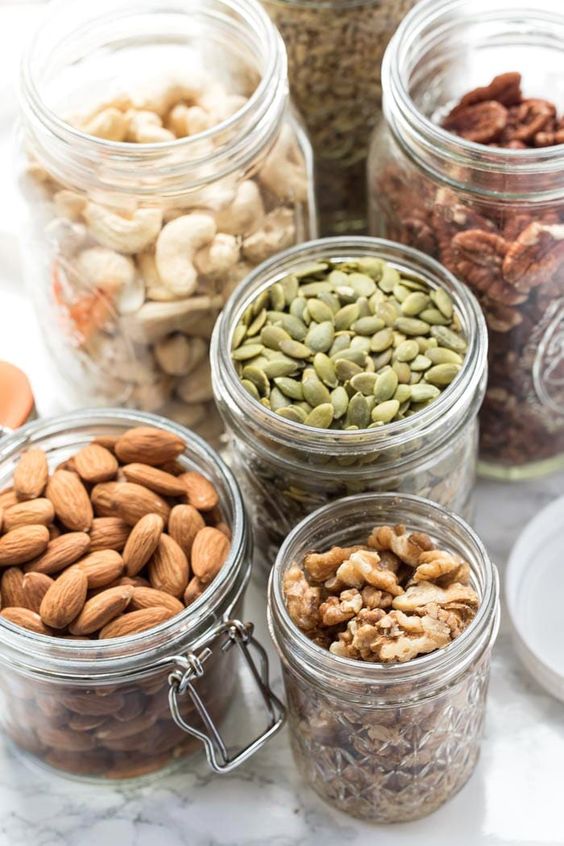
A handful of mixed nuts and seeds is one of the most nutrient-dense healthy vegan snacks.
Include:
- Almonds
- Walnuts
- Cashews
- Pumpkin seeds
- Sunflower seeds
- Flaxseeds
Benefits:
- Supports heart health
- Provides omega-3 fatty acids
- Improves brain function
Portion control is important since nuts are calorie-dense.
5. Hummus with Veggie Sticks
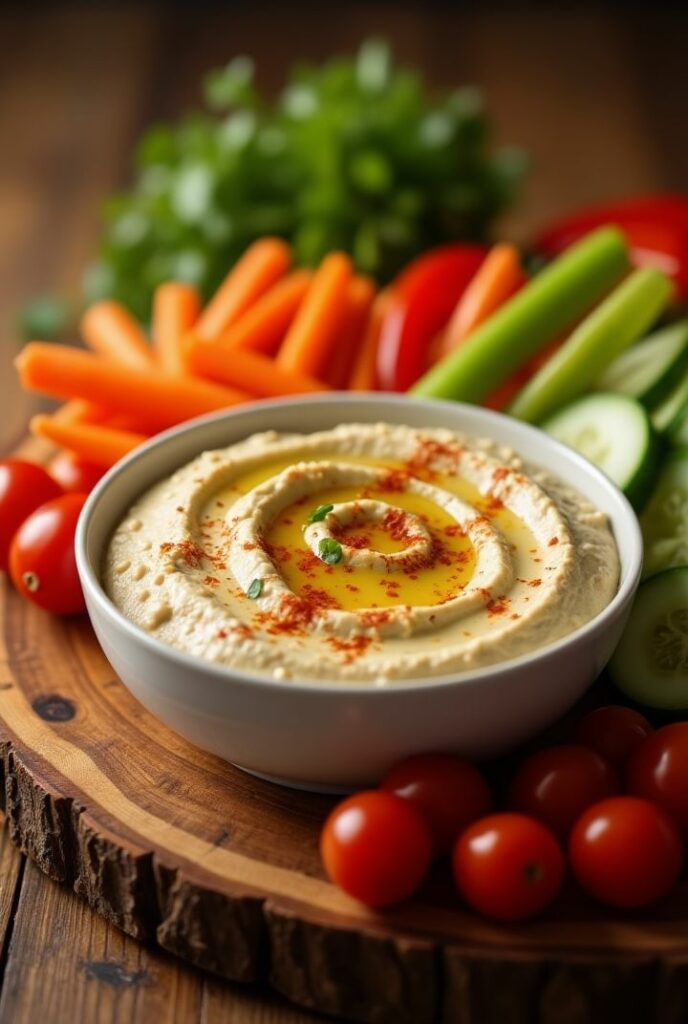
Hummus is made from blended chickpeas, tahini, olive oil, lemon, and garlic.
Pair it with:
- Carrot sticks
- Cucumber slices
- Bell pepper strips
- Celery
This snack provides:
- Protein
- Fiber
- Healthy fats
It is filling and highly nutritious.
6. Vegan Smoothies:
Smoothies are excellent healthy vegan snacks, especially when you need quick nutrition.
Add:
- Spinach or kale
- Banana
- Berries
- Plant-based milk
- Chia or flax seeds
Smoothies support digestion, immunity, and hydration.
7. Avocado Toast
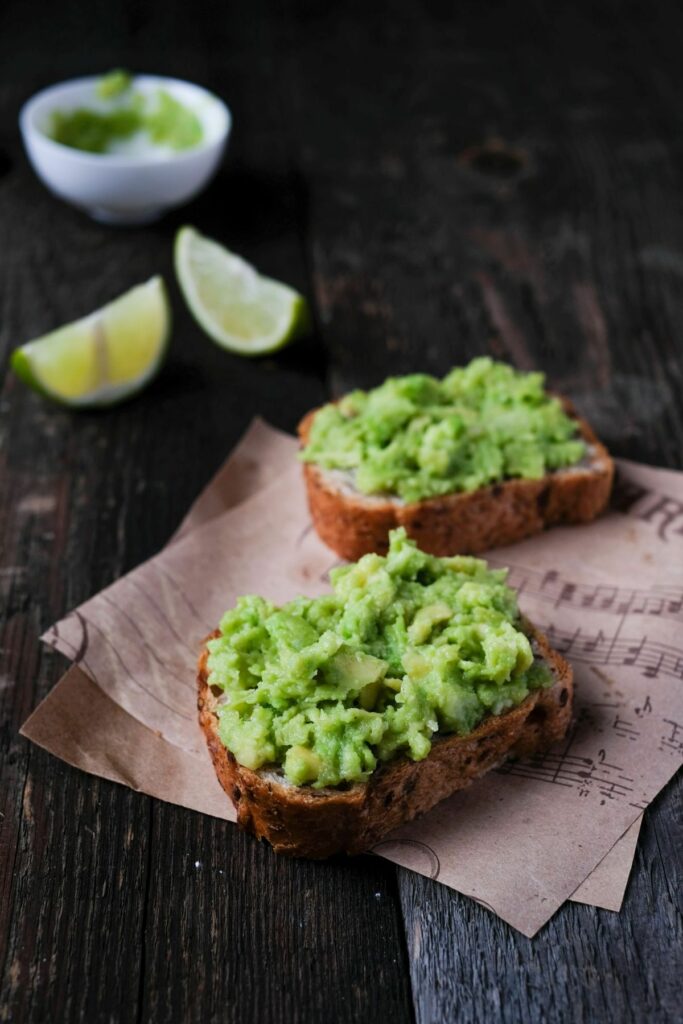
Whole-grain toast topped with mashed avocado makes a satisfying snack.
Enhance with:
- Cherry tomatoes
- Lemon juice
- Chili flakes
- Nutritional yeast
Avocado provides healthy fats that support heart health and satiety.
8. Oatmeal Snack Cups

Mini oatmeal cups made with oats, mashed banana, and nuts can be prepared in advance.
They are:
- High in fiber
- Naturally sweet
- Easy to carry
These are perfect mid-day healthy vegan snacks.
9. Dark Chocolate (70% or Higher)
In moderation, dark chocolate can be included in healthy vegan snacks.
Benefits:
- Rich in antioxidants
- Improves mood
- Satisfies sweet cravings
Always choose dairy-free options.
10. Air-Popped Popcorn
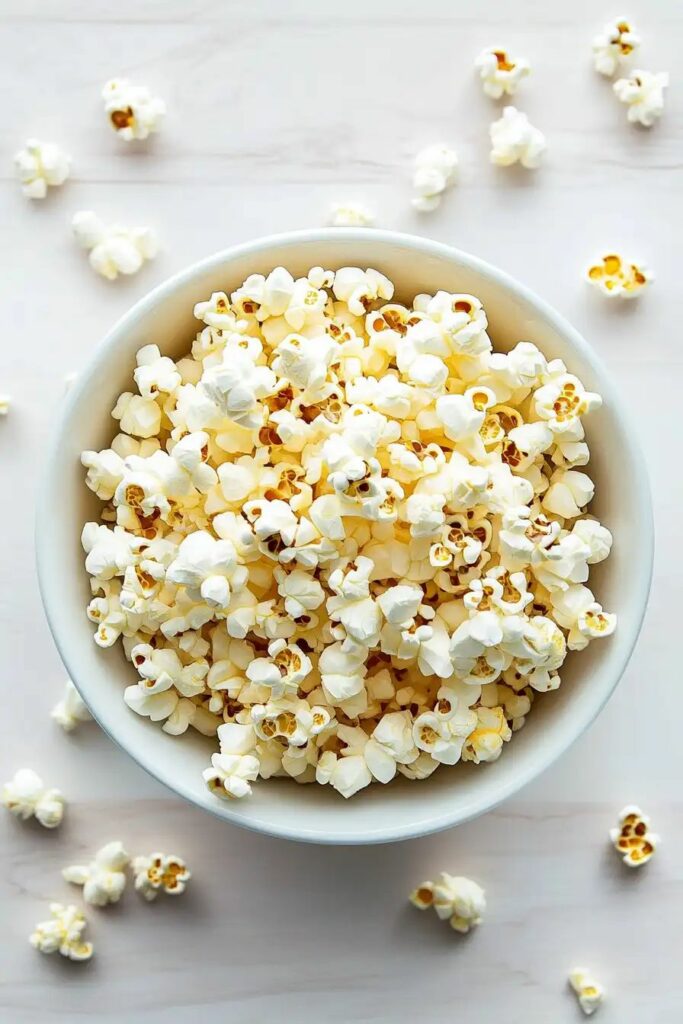
Popcorn is a whole grain and can be healthy if not loaded with butter.
Sprinkle with:
- Nutritional yeast
- Paprika
- Sea salt
It’s low in calories and high in fiber.
Conclusion: Vegan Diet for Beginners
Starting a vegan diet for beginners may feel challenging at first, but with proper planning and the right food choices, it can become a healthy and sustainable lifestyle. Focusing on whole plant-based foods like fruits, vegetables, whole grains, legumes, nuts, and seeds ensures balanced nutrition. A well-planned vegan diet can support weight management, improve heart health, boost digestion, and increase overall energy levels.
For beginners, the key is gradual transition, learning simple recipes, and paying attention to important nutrients like vitamin B12, iron, calcium, protein, and omega-3 fatty acids. With consistency and awareness, a vegan diet for beginners can be both nutritious and enjoyable.
FAQs:
Q. What is a vegan diet?
A. A vegan diet excludes all animal products, including meat, fish, eggs, dairy, and honey. It focuses entirely on plant-based foods.
Q. Is a vegan diet healthy for beginners?
A. Yes, a well-balanced vegan diet can be very healthy. It is rich in fiber, antioxidants, and essential nutrients when properly planned.
Q. How do beginners get enough protein on a vegan diet?
A. Protein sources include lentils, chickpeas, beans, tofu, tempeh, nuts, seeds, quinoa, and plant-based protein products.
Q. Do I need supplements on a vegan diet?
A. Vitamin B12 supplementation is usually necessary. Some people may also need vitamin D, iron, or omega-3 supplements depending on their diet and health status.
Q. Can a vegan diet help with weight loss?
A. Yes, many people experience weight loss because plant-based foods are generally lower in calories and higher in fiber, which increases fullness.
Q. What are common mistakes beginners make?
A. Common mistakes include not eating enough calories, ignoring protein intake, skipping B12, and relying too much on processed vegan foods.
Q. Is a vegan diet expensive?
A. It does not have to be. Staples like rice, beans, lentils, vegetables, and fruits are often affordable and widely available.
Q. How can I start a vegan diet as a beginner?
A. Start by replacing one meal at a time with plant-based options. Gradually eliminate animal products and focus on learning balanced vegan recipes.
Q. Will I feel tired after switching to a vegan diet?
A. If properly planned, a vegan diet should not cause fatigue. Ensure adequate calorie intake and monitor important nutrients like iron and B12.
Q. Can children and pregnant women follow a vegan diet?
A. Yes, but careful planning and medical guidance are essential to ensure all nutritional needs are met.



